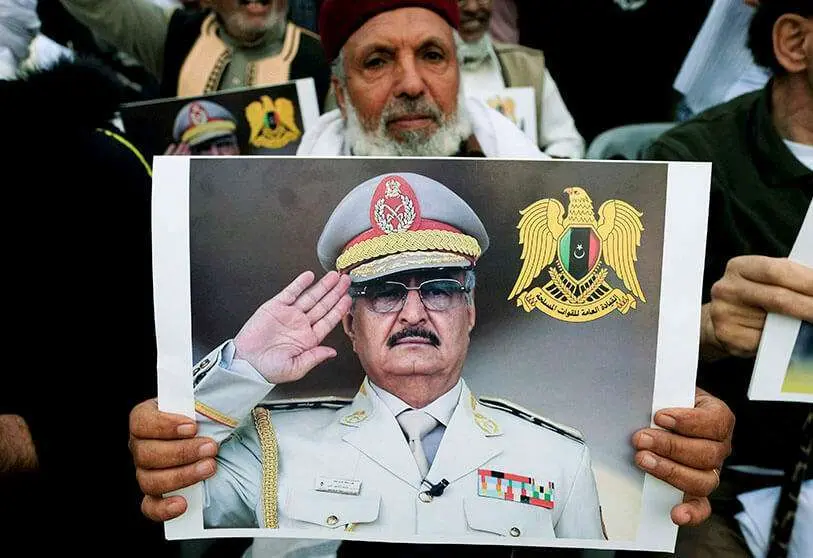Libya, with war and virus

Libya is not the only country where the war continues regardless of the incidence of the coronavirus in the civilian population. But it is a strategic point so that the crossed interests of multitude of actors prevail before the need of prevention and health attention to face the hard effects of the pandemic. The Turkish intervention has contributed to worsen the situation by sending Syrian mercenaries who are trained in training camps in southern Turkey, as well as members of its Armed Forces and all kind of weapons.
The Turkish drones have become one of the best weapons used by the forces trying to prevent the fall of the capital, Tripoli, into the hands of the Libyan National Army, headed by Marshal Khalifa Haftar. This enclave and the city of Misrata are the last targets left for Marshal Haftar to control the whole country against the Government of National Accord, led by Fayez Sarraj, supported by various paramilitary militias, some of them linked to terrorist organizations.
The offensive launched a year ago by Marshal Haftar to complete his total control of the country, now has 85% of Libyan territory under his command, including the main oil wells and refining and marketing centres, has been countered by Turkish troops, where drones play a special role along with anti-aircraft systems. Amidst attacks and counter-attacks, the civilian population is suffering from intense bombardment along with fears that a coronavirus outbreak will further worsen their situation. Depending on the area, houses suffer from power cuts, causing refrigerators to stop working and food to spoil, and cuts in the water supply leaving much to be desired in terms of hygiene. The consequences could be disastrous because hospitals and care centres are already saturated by the effects of war. Restrictions have been put in place because of the coronavirus, which has the negative effect of impeding humanitarian access and the movement of medical personnel.
Ceasefire initiatives or meetings in Switzerland or Berlin seeking a political solution between the parties have not been successful. The agreements reached in the Moroccan town of Skhirat in 2015 have been surpassed by the harsh reality. A few days ago, the president of the United States, Donald Trump, and the French president, Emmanuel Macron, expressed their concern about the worsening of the situation in Libya due to foreign interference.
However, each foreign power intends to safeguard its interests in Libya, which are mainly focused on high quality and low-cost oil and on the stock exchange discovered in the Mediterranean and which confronts the Turkish President, Recep Tayip Erdogan, with the countries of the region. The need to end the chaos in Libya has another pressing point: to end a failed state where the mafias of trafficking in people, arms and drugs are at large financing the terrorist militias of the region.
The coronavirus has forced almost everyone to stop almost every kind of activity other than fighting the pandemic. Even international missions have been affected, in various areas such as the Sahel where the infections suffered have led to a decrease in personnel and tasks. The reality is that terrorist groups are not stopping their plans to cause harm and death.
Among other terrorist groups, members of the Daesh take advantage of the situation to try to reorganise themselves, not only in Iraq or Syria, but also in the Sahel area and control the routes used by the mafias to move sub-Saharan immigrants to Libya, where in various ports and with the appropriate bribes, the dream of thousands of human beings ends up at the depths of the Mediterranean. In Libya, we Europeans should not only be concerned about oil.

